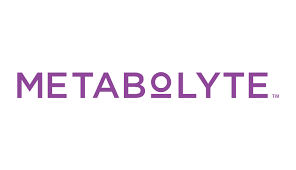
Is Metabolyte a Scam? - TLDR
 |  |
SUMMARY: It is our opinion that Metabolyte is a scam. Metabolyte is either sodium or potassium bound with dodecanedioic acid. The inventors seem to describe it as "a source of energy through the oxidation of fatty acids" but the brands using it say it "supports true hydration by replenishing essential electrolytes lost during physical activity, enhancing water uptake without the drawbacks of traditional salt, and extending physical performance without the need for frequent sugar consumption." We can find no human clinical evidence for Metabolyte. What's weird is that, to the best of our knowledge, you could replace the word Metabolyte in the brand description above with normal potassium / sodium, and the exact same statement would be true. It seems that all the benefits of this ingredient equally describe a normal electrolyte. Why does dodecanedioic acid improve an electrolyte?
Admittedly, we have never heard of dodecanedioic acid; the Wikipedia is here. Interestingly, it has been locked due to "Persistent spamming" of Metabolyte. The website states "There is roughly 340mg of potassium for every 1000mg of potassium Metabolyte". So this is a mix of 340mg of potassium and 660mg of dodecanedioic acid. This is comically cheap to make; at volume, you can get potassium in bulk here for $4.80/kg and dodecanedioic acid here for $3/kg. You can mix this and make it yourself for $0.0108 per 3 g serving if our math is right, nearly free!
The one thing bugging us is that we can't think of a reason someone would go to the effort to bind potassium / sodium to dodecanedioic acid for no obvious benefit. Our best guess is that you obviously can't patent sodium / potassium and you can't patent dodecanedioic acid lowering glucose due to prior art so they are trying to bind them into a "novel" ingredient while calming the exact same benefits of the individual original ingredients?
Avoid Metabolyte, just buy some normal sodium or potassium instead.
What is a TLDR review?
A full ingredient review takes weeks to research and weeks to write up as they are 2000–4000 words in length. We love the research part but don't have a full mastery of the English language and loathe the writing. TLDR means "Too long, didn't read". We are going to try doing the same research and just writing a summary. If an ingredient gets enough views, we will expand this to a full write-up. We hope this allows us to give our opinion on more ingredients and prioritize novel new ingredients that just launched.

